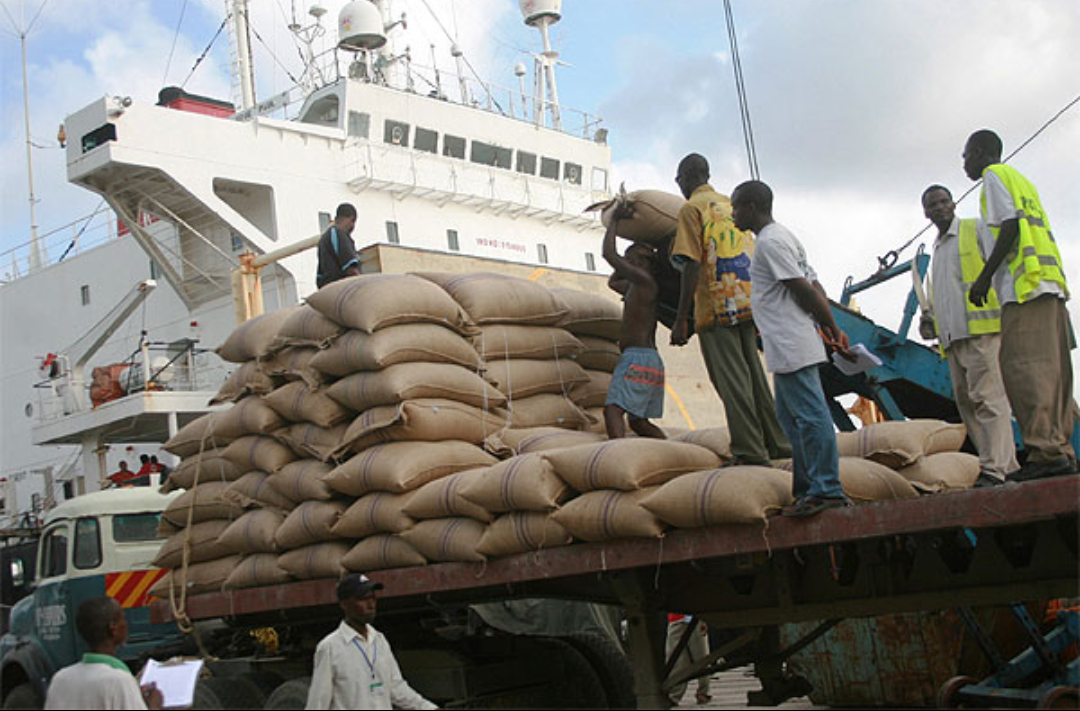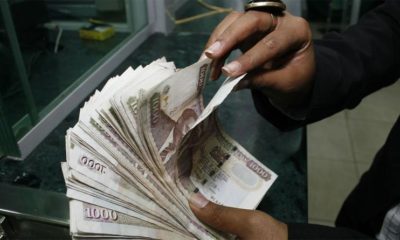News
Disaster: An Acute Maize Shortage Is Looming In Kenya

Agriculture Cabinet Secretary Mwangi Kiunjuri has declined to authorise the importation of more maize.
NCPB stock records indicate that they have bags to run for only one month in storage.
CS Kiunjuri says the decision to authorize maize importation requires approval of a full Cabinet.
CS Kiunjuri said duty-free imports have been controversial in the past years.
The CS told a local press that he’s going to involve the entire cabinet in the vital decision in order to avoid political cartels that always make huge profits from such importations.
Initially, ministry of Agriculture used to apply for tax waivers from the Treasury. The ministry would later issue permits to specific traders and millers who later imports duty-free maize.
Maize is the staple food in many poor households and the anticipated shortage would lead to massive prices hikes of maize flour and products.
“I know time is running out, but I will leave that decision to be made by the Cabinet. I understand that landmines are being set for me and that is what I am avoiding,” CS Mwangi Kiunjuri in a media press.
The Government had said that they have 21 million bags, which from their estimations would sustain the country until mid June.
The NCPB is also set to release 3 million bags to Maize Miller’s. The bags are from governments Strategic Food Reserves.
In 2017, Treasury CS Henry Rotich and the then Agriculture CS Willy Bet were subjected to thorough scrutiny and grilling from the Senate for abuse of the importation process.
Last year, the Senate agricultural committee members accused Mr Bett of opening gates of cheap maize which affected local farmers products that were already in the markets.
Gerald Musila, the Executive Director of Eastern African Grain Council, said that the maize will arrive more than 3 months later.
Musila emphasized that the process should have been authorized months ago because it takes over 3 months for maize to reach Kenya from any suitable country.
Kenya had previously imported controversial maize from Mexico that took over 4months to reach in the country.
Our agricultural statistics indicate that Kenya depends on maize imports from Malawi and Zambia.
However, Zambia has barred all maize importations and Malawi crop production was massively affected by Cyclone Kenneth and Cyclone .
Tegemeo Institute researcher Dr. Timothy Njagi, said the needs to be an accurate assessment of the amount of maize in the country.
flour section in a supermarket. FILE PHO
In support of Dr. Njagi’s advice was Dr. Andrew Tuimur, the Chief Administrative Secretary at the Ministry of Agriculture.
Dr Tuimur said that the ministry want to avoid the repeat of mistakes that made in 2017.
In 2017, the government subsidy programme intended to import 6million backs but a backdoor deal between the ministry and Millers saw 10million bags being imported in.
In April this year, Kenya’s inflation rate increased to 6.58% from the previous 4.35%.
Kenya Bureau of Statistics (KNBS) has projected a very sharp rise and increased maize flour and corn related food prices.
KNBS also reported that the maize shortage is going to cause a price upsurge on nonalcoholic and alcoholic drinks as from mid June.
Kenya Insights allows guest blogging, if you want to be published on Kenya’s most authoritative and accurate blog, have an expose, news TIPS, story angles, human interest stories, drop us an email on [email protected] or via Telegram
-

 Grapevine1 week ago
Grapevine1 week agoAlleged Male Lover Claims His Life Is in Danger, Leaks Screenshots and Private Videos Linking SportPesa CEO Ronald Karauri
-

 Lifestyle2 weeks ago
Lifestyle2 weeks agoThe General’s Fall: From Barracks To Bankruptcy As Illness Ravages Karangi’s Memory And Empire
-

 Grapevine4 days ago
Grapevine4 days agoRussian Man’s Secret Sex Recordings Ignite Fury as Questions Mount Over Consent and Easy Pick-Ups in Nairobi
-

 Investigations2 weeks ago
Investigations2 weeks agoEpstein Files: Sultan bin Sulayem Bragged on His Closeness to President Uhuru Then His Firm DP World Controversially Won Port Construction in Kenya, Tanzania
-

 Investigations1 day ago
Investigations1 day agoMulti-Million Dollar Fraud: Three Kenyans Face US Extradition in Massive Cybercrime Conspiracy
-

 Investigations1 week ago
Investigations1 week agoEpstein’s Girlfriend Ghislaine Maxwell Frequently Visited Kenya As Files Reveal Local Secret Links With The Underage Sex Trafficking Ring
-

 News2 weeks ago
News2 weeks agoState Agency Exposes Five Top Names Linked To Poor Building Approvals In Nairobi, Recommends Dismissal After City Hall Probe
-

 Business1 week ago
Business1 week agoM-Gas Pursues Carbon Credit Billions as Koko Networks Wreckage Exposes Market’s Dark Underbelly




























